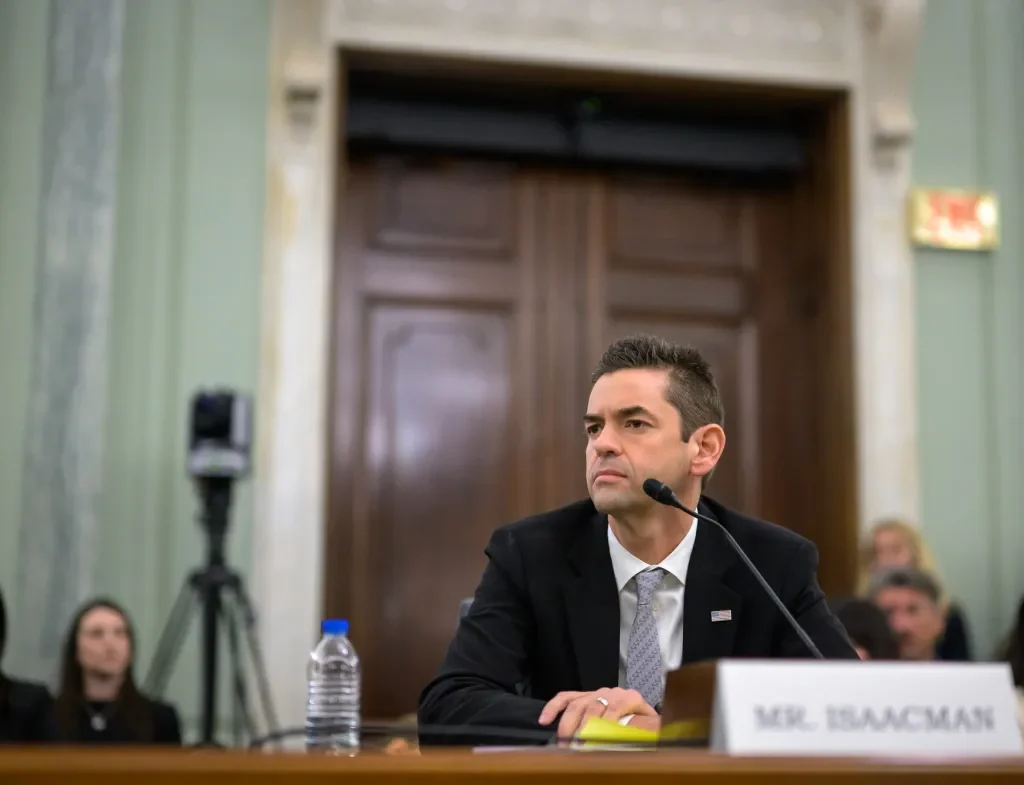Jared Isaacman, the billionaire entrepreneur and private astronaut, said on the All-In Podcast June 4 that he believes his nomination to lead NASA was withdrawn by the White House due to his connections with Elon Musk.
Isaacman said he was informed on May 30 that President Trump had decided to “go in a different direction,” ending his nomination as NASA administrator—a move made public the following day. This interview marked Isaacman's first detailed public comments on the matter beyond brief social media posts.
“I got a call Friday of last week that the president decided to go in a different direction,” Isaacman recalled. “It was a real bummer.” He added he expected the announcement to be delayed to notify various government parties but was surprised by the timing.
Isaacman said he suspects his association with Musk, a high-profile figure and former informal White House advisor, contributed to the decision. Musk's formal role as a “special government employee” ended the same day Isaacman was informed of the nomination's withdrawal.
“I don't need to play dumb on this,” Isaacman said. “I don't think that the timing was much of a coincidence, that there were other changes going on the same day.”
The relationship between Musk and Trump had reportedly grown strained before Musk's departure. Musk has recently criticized a budget resolution bill backed by Trump, saying it would increase the national debt.
Isaacman also dismissed suggestions that his past donations to Democratic candidates influenced the withdrawal. “That was not a new development,” he said, noting the donations were publicly known and included in his Senate Commerce Committee questionnaire.
Asked whether the move was a “shot at Elon,” Isaacman said, “people can draw their own conclusions,” but added, “I think the direction people are going, or thinking on this, seems to check out to me.”
The White House declined to comment beyond White House Press Secretary Karoline Leavitt's June 3 statement that the president has the right to remove nominees “if he so chooses” and that a replacement would be named soon.
During the interview, Isaacman also outlined his vision for NASA had he been confirmed. He stressed the need for the agency to focus on “needle-mover” projects that push the boundaries of space exploration, such as completing lunar missions, developing heavy-lift reusable launch capabilities, and advancing nuclear-powered spacecraft.
Isaacman advocated for streamlining NASA's bureaucracy and criticized the Mars Sample Return mission for its cost and delays, proposing instead that astronauts bring samples directly back from Mars to speed scientific progress.
He emphasized a preference for smaller, faster missions with a tolerance for failure, proposing “10 $100 million missions a year” with “time to science” as a key performance metric. He also expressed skepticism about NASA's decadal survey process, calling its 10-year planning horizon “kind of insane.”
Isaacman said he has not decided whether to return to spaceflight now that he will not lead NASA. He previously commanded the Polaris Dawn private space mission and noted he would likely cancel related Starship contracts.
“This is like the first time in 26 years that I've really been out of work,” Isaacman said. He stepped down as CEO of Shift4, the payment processing company he founded, but may return in another capacity. “I love flying and I love space,” he added.
